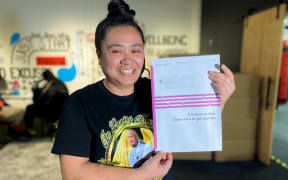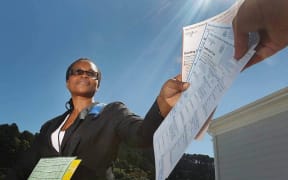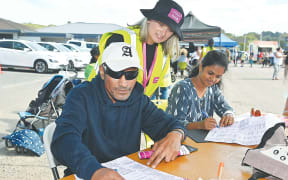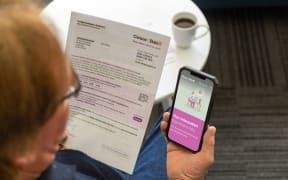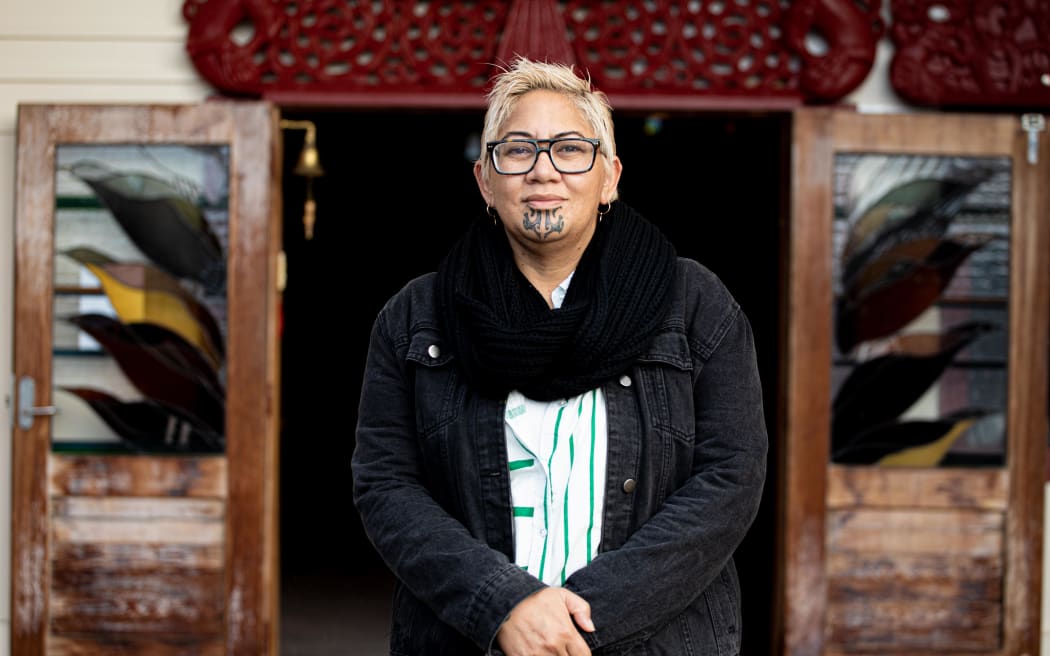
File photo: Manurewa Marae CEO Takutai Moana Natasha Kemp told RNZ in June intergenerational mistrust of authority put some people off the census, but the marae was a safe place. Photo: RNZ / Simon Rogers
An iwi-led initiative has boosted Māori participation in the 2023 census.
Te Mana Whakatipu was implemented across Tūranganui-a-Kiwa in Gisborne, Te Tai Tokerau in Northland and Te Whānau-ā-Apanui in the Eastern Bay of Plenty.
Iwi spearheaded efforts to encourage and support whānau to complete their census forms, and the approach worked so well that whānau who had never participated in a census took part.
Te Kahui Raraunga (TKR) is a charitable trust set up in 2019 to improve collection of, access to and use of Māori data, after failings were identified in the way it was collected in 2013 and 2018.
TKR chair Rahui Papa said the trust entered an arrangement with Stats NZ to allow iwi to collect and analyse their own data.
The results of Te Mana Whakatipu spoke for themselves, he said.
"Especially in Te Whānau-ā-Apanui, we saw a data capture that far exceeded what the government had done in 2018. In 2018, those (three) rohe had around 60 percent capture... and (this year) we've seen in excess of 70 percent, and that's huge."
In Te Whānau-ā-Apanui the participation rate was 92 percent. In Tūranganui-a-Kiwa it was 83 percent and in Te Tai Tokerau, 73 percent.
Papa says the programme had been successful because it was locals who were doing the door-knocking, and whānau trusted them.
The goal was to improve data capacity among iwi and build on the success of the pilot.
"[We're] trying to convince the Crown that when... government agencies work with iwi, successful outcomes happen."
The trust wanted a more extensive rollout into other parts of the motu for the next census in 2028, he said.
In Gisborne, Te Runanga o Tūranganui-a-Kiwa and Te Runanga Nui o Ngāti Porou worked together on the census, reaching an estimated 83 percent of whānau in the city, despite disruption caused by Cyclone Gabrielle.
Te Runanga Nui o Ngāti Porou chief executive George Reedy said more than 50 percent of the population in the region were Māori and the majority did not trust the government and its systems.
Whakapapa connections helped build trust when door-knocking and their teams focused on streets or blocks that had a history of not engaging in the collection of census data, he said.
"We're on the ground doing the work, talking to them and they can see us, they can see themselves in the work that we're doing rather than somebody else coming and knocking on their door and trying to extract stuff out of them," Reedy said.
"There was a lady from one of the communities... that we worked with [who] hadn't filled out a census in her life and she was in her 60s. There are people who feel disenfranchised perhaps by the system, and our job is to work with those ones to bring them back and to get more people to complete the census forms."
Reedy encouraged other iwi to take up the opportunity and ensure their people were counted on a national scale, adding that those who had participated hoped the pilot would inspire projects like this across the country.
